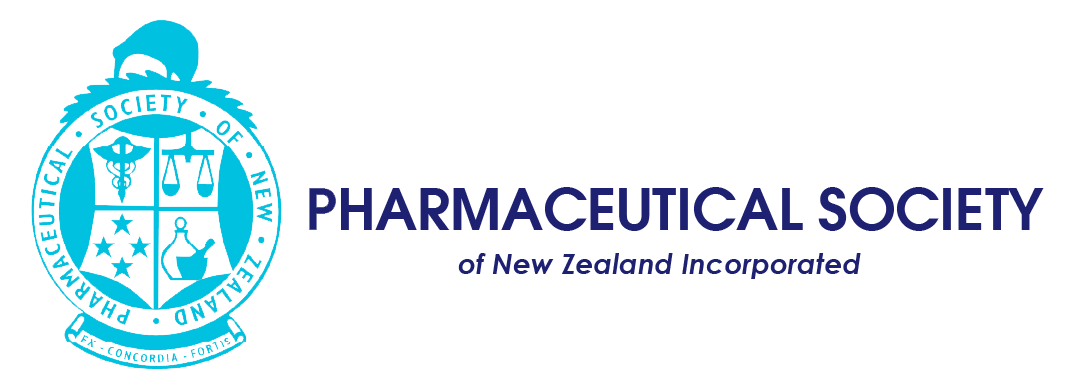Health: Government should be thinking PHARMACY FIRST
The value proposition of the Pharmacy Profession for improving the Health and Wellbeing of New Zealand.
- More immunisation - Pharmacists will achieve immunisation rate targets.
- Better mental health - Pharmacists can provide specifically designed wrap around services for mental health and wellbeing in the community.
- More point of care testing/screening and medicines optimisation services - Pharmacists can provide convenient access to much needed healthcare services for the most vulnerable in the community, including the elderly, children, Māori and Pacific people and people managing chronic health conditions.
- New minor ailments and population health services - Pharmacists can provide access to healthcare services in the community, including treatment of minor ailments, and relevant population health services.
WORKFORCE
Pharmacy is at the frontline of the New Zealand health system. As demonstrated in COVID-19, pharmacy provides essential face-to-face access six or seven days a week to meet the needs of the community.
What is the plan for the New Zealand health workforce for primary health care?
Over the next five years, 27 percent of GPs intend to retire. Over the next 10 years, 47 percent intend to retire. Read more about the GP Workforce Survey.
The pharmacy profession has a much younger age-profile than most other health professions, with 45% of the pharmacy profession under the age of 36 years of age.
The pharmacy profession is the Tier 1/primary healthcare workforce that can meet the needs of local communities.
The pharmacy workforce has demonstrated they have the capability, capacity and competence as medicines experts working across the health sector.
To become a registered pharmacist, a person must complete a four-year university degree and a one-year internship in a pharmacy. Pharmacists must also complete regular professional development training to maintain their annual practising certificate.
Pharmacists work in community pharmacies, hospitals, general practice, rest homes, independently as consultants and within government. Pharmacists prescribe, dispense, triage and consult.
ACCESS and EQUITY
Community pharmacy enables frontline solutions to address access and equity challenges in the population.
Currently, the pharmacy profession’s skill and knowledge base are not maximised in any way by the New Zealand health system to provide better Tier 1/primary health care.
Pharmacists qualifications and training mean they can prescribe medicines, assess treatment regimes, analyse, and recommend deprescribing and treatment plans, supply a wide range of special categories of medicines and conduct point of care testing and dose adjusting.
HEALTH LITERACY AND SELF MANAGEMENT IN THE COMMUNITY
Pharmacists are the face to face personal health care coach in the community.
Pharmacists are trained to support vulnerable populations with poor health literacy and to understand the medicine management needs of people.
HEALTH POLICY and OBJECTIVES
Greater utilization of the pharmacy profession will assist HEALTH NEW ZEALAND achieve its objectives and meet the needs of the people.
The pharmacy professions workforce capability, competence and capacity align with Government strategies and policies for greater health care in the community.
Pharmacist services can enable DHB System Level Measures to be achieved - medicine management for chronic conditions, management of minor ailments, testing, screening and monitoring for a range of conditions, population and health services, reducing barriers for high need populations – all activities enabling inequities in health to be addressed.
Pharmacists are the workforce that will deliver NZ Health and Disability System Review, Tier One, “Building the Future” recommendations of:
- DHBs should have the flexibility to commission Tier 1 service delivery models that reflect their population’s aspirations and needs. Tier 1 investment should prioritise prevention and addressing inequities by initially expanding service coverage in areas of highest need.
- The first priority should be preventive services and services that ensure children, Māori and Pacific peoples achieve optimal outcomes. Investing in a wider range of mental health services must also continue to increase.
- Priority should also be given to introducing medicines optimisation services (e.g. for people living with chronic conditions) and new models of care for frail older people and older people with complex health needs.
PHARMACIST SERVICES
Pharmacists are able to be contracted to provide services within a community pharmacy, in a general practice, in an aged residential care facility, in a patient’s home and employed in hospitals to provide services.
Such services are set out in the New Zealand National Pharmacists Services Framework, and the Integrated Community Pharmacy Services Agreement.
These services include: Patient Medicine Use Reviews, Community Pharmacy Anticoagulation Management Services, Medication Therapy Assessment for health practitioners, in store consultations for Emergency Contraception, selected oral contraception, urinary tract infections, conjunctivitis, gout management with uric acid testing, as well as dispensing medicines with advice.
Individual DHBs can commission local pharmacist services based on service specifications and pharmacists accredited with extra training.
The New Zealand Health and Disability Review Report states Tier One recommended services guaranteed for localities should be:
Community pharmacy services
- Pharmacist-led services in community settings, including dispensing, treatment of minor ailments, acute demand triage and referral and relevant population health services.
Medicines optimisation services
- A person-centred approach to safe and effective medicines used to ensure people obtain the best possible outcomes from their medicines. Services are led by clinical pharmacists and take place at home, or other places that meet consumer and whānau needs
Mental health services and behavioural support
- Support to help people achieve their best possible mental and emotional wellbeing which could include health coaches, health improvement practitioners, counsellors, social workers, youth workers and whānau ora kaimahi.
Outreach services
- Health services provided to people in their homes or convenient locations, often by community health workers, kaiāwhina or social workers
Population health services
- Preventive interventions delivered to individuals aimed at promoting wellbeing and avoiding the development of disease or disability, e.g. screening, immunisation, health promotion.
GOVERNMENT SUPPORT NEEDED
Pharmacists need the government’s support so they can provide wider healthcare services that are easy to access in the community.

